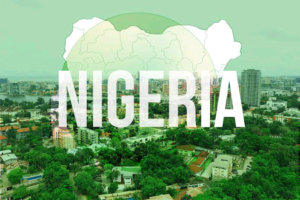CORRUPTION HAS ITS SOCIO-CULTURAL ROOT IN NIGERIA
By Leonard Okoli Maduabuchi Caesar
I have taken a close look at the different opinions on the meaning and nature of corruption as far as our dear nation is concerned. Some authors have the view that corruption is an outshot of the greedy nature of the average black man. Others opine that the absence of discipline in the individuals and the entire community at large is a factor in the prevalence of corruption. Yet some hold the opinion that the prevalence of corruption in Nigeria today is normal because it is consistent with the history of the development of nations. Those in the latter group mention the history of Europe and other nations as evidences. They propound the view that since these civilized countries have all had a point in their history when they were engulfed in intense corruption but later overcame it, Nigeria will do the same.
I contend these views in different dimensions; yet that is not the intention of this work. This paper sets out to argue corruption has its socio-cultural roots in the Nigerian society. As much as one may believe that corruption has its external influx, I argue that there a something intrinsic in the fabrics of the Nigerian society that fuels corruption to the extent that it looks normal.
The continuous manifestation of corruption and its effects in the Nigerian society is one that no individual can deny. We have its experiences everyday such that we do not need to gather more experience before endorsing it as true. In fact, corruption is here with us. It is present both in the public and private sector. It thrives in family life, in the religious sphere and even in the judicial system; the latter which is supposed to be anti-corruption.
Instances of corruption are rift. In the public sector, the level of embezzlement is alarming. What makes the matter acute is the fact that Nigerians do not follow these issues to its logical conclusion. The only issue that is being followed is the case of the convicted former governor of Delta State. This particular case is being followed through because of the intervention of the international community. I feel strongly that if the international community did not intervene, the latter convicted would be walking freely right now as other public servants who have committed worst crimes are doing now. Unforgettable amounts of Nigerian wealth are being mismanaged and even stolen, yet nobody is bothered. In some cases, we are aware of those to hold accountable, yet all the government can do is to set up investigative committees that will eventually come out with nothing meaningful. All the civil society does is to comment about it on the social media and then sit back watching in what the French philosopher call “bad faith”.
What is responsible for the excessive corruption amongst us to the extent that we are disinterested, at least in the practicable manner? Is there something within our socio-cultural setting that accounts for this? The writer argues in the affirmative; that is, there is an intrinsic part of our social and cultural lives that predisposes us to corruption or at least to endorse it with little or no kick-back. This intrinsic factor weakens our definition of corruption; instead, it explains it in somewhat light manner so as to reduce the weight of its implications. This same factor covers corruption in euphemisms that blind us to the true nature and meaning of corruption.
In traditional Africa society, the need for showing gratitude cannot be ruled out in the human inter-personal relationships. For every single interaction that involved one party ranting favour(s) to the other party, there was the necessity for showing gratitude. I Mr. A from Family A has helped Miss B from family B get admission into the university through his influence (let us say Mr. A is a senior staff), the entire B family are bound to be grateful to Mr. A and his family. Therefore, they go to show gratitude either taking drinks to Mr. A or by any means they can afford. This was the situation in traditional African communities. Showing gratitude for favours received was sacrosanct and paramount. In fact, one can decipher that this attitude falls in line with the African habit of always showing gratitude to the gods and spirits when he/she is favoured.
As time went by, with the influx of the Western tradition especially the introduction of classic capitalism-the idea that you have to earn whatever you request or wish to acquire-, people started demanding for gratitude! Two things emerged. First, people no longer helped others because they wanted to, but in expectation of some reward of some kind; the purported gratitude. Second, the gratitude was now demanded for, no longer left at the discretion of those to give it. Our society then transformed from a helpful society to a “demandful” society. Before Miss B can gain admission into the university with the help of Mr. A, she has to pay in some manner, whether in cash or in kind. That fuelled corruption and its various forms. In all spheres of life, people get to pay before being helped. The point that makes it acute is that such payments are requested for and the highest bidder gets the favour. Come to think of it, in politics, religion, school life, the military, labour market et cetera, you must know somebody before you can think of getting help. That is not all; you must pay in the classic sense for whatever you ask.
Now I do not suggest that everything should be given to people as favours such that they would not have to do anything for themselves! No. For instance, a student should not be given unmerited grades or an employee undue promotion. Unfortunately, this is what constitutes exactly the state of corruption in our nation today. Unmerited awards and promotions are given to people once they can pay the price. Awards of excellence are given to governors who have done very little compared to what they should have done because they “know their way”.
Furthermore, this demand for “pay before you go” has resulted to exploitation in all aspects of our lives in this nation. In religion, specifically in churches, members are asked to pay for blessings, deliverances, prayer sessions and all manner of activities with different nomenclatures. There is so much fraud and extortion everywhere. In fact, the establishment of churches has become the most lucrative business! Having the title “pastor” attached to one’s name seems to be an entitlement to wealth.
In the long run, this way of life has become acceptable to many Nigerians. It now translates into what I call the “privileged position expectation”. This is the expectation by the immediate family or close relatives of someone in a high position that the latter will acquire wealth through whatever means necessary and in turn enrich those closest to him/her. The fact is that when he/she is leaving that privileged public office, there must be excessive wealth to show and share to the expectants. If an individual does not steal enough, he/she will be branded a failure. In other words, your wealth justifies your worth or your level of success. As such, the pursuit of public offices are done with little or pure intention to serve; rather with the intention to stockpile wealth meant for the development of the masses.
Here I intend to drop the pen for now. Each reader should recognize the fact that corruption has grown in so many directions and can be approached in different ways. I only argue that on a more fundamental look shall we discover that which I have explained above. Speaking of a remedy, we must attack this fundamental misplaced presupposition. Showing and receiving gratitude is not bad. In fact, it is courteous and understandable. However, we must redefine the reason and manner by which we carry this out. We should re-orient ourselves from being “demandful people” to being a “helpful people”. Everyone should be able to help anybody without strings attached. This is a difficult but possible task; but it can be done. So, let us start! Read for free!



